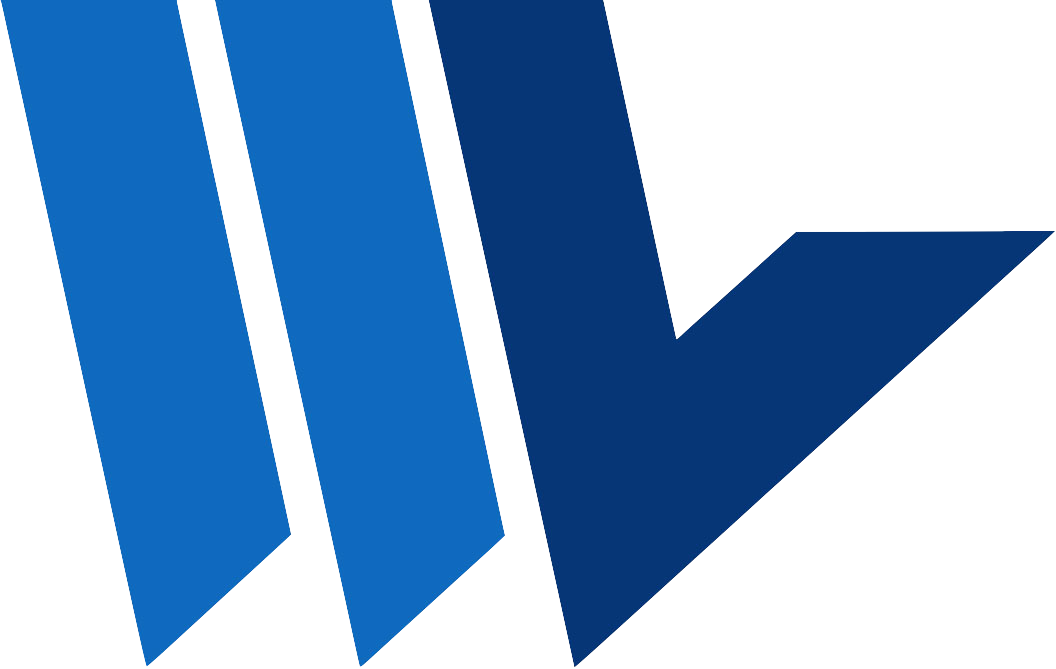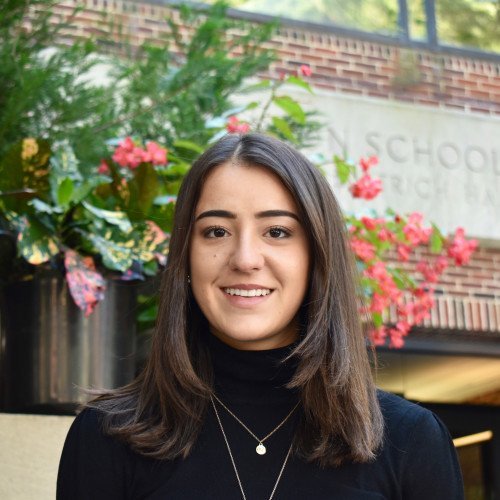Antia Vasquez
Wharton/SAS ‘19
INTERVIEW — MAY 6TH 2022
What did you study at Penn?
I’m Huntsman Class of 2019, so I studied international studies in the college with a target language, and at Wharton, I studied OIDD, which is Operations, Informations, and Decisions Processes. I did the Decisions processes track.
What was your target language?
I studied French. During the summer of my freshman year, I went to Lyon with Melanie Peron, one of the French teachers in the department. We spent about six weeks staying with a host family in Tours and taking classes with Melanie. It was really cool because Tours is in the Loire Valley which is the area in France with a lot of castles and a big historical heritage. So, you study François 1er and then you go visit the castle that he built. It’s very interactive and it’s a history class and literature and creative writing class at the same time. Then, the spring semester of my sophomore year in Lyon with 20-25 Penn students. It was a blast!
Why did you decide to study in the US? How did you decide that the Huntsman Program was right for you?
To answer your first question. It actually had nothing to do with business. I used to dance ballet very seriously and when I was 15 I wanted to go to Cuba to do high school there because their public dance school was one of the best ones in the world. My parents were not super supportive of this idea, so I started looking for alternatives of places where I could study in a place where I could continue to dance. The US with its liberal arts curriculum seemed like a really good in-between. I visited a few schools in the US during the summer of my junior year of high school. They were good options, but I wasn’t completely convinced. But then, in the spring of my junior year of high school, I visited Penn on one of those ugly snow days. I attended the Huntsman Conference, which was focused on Mexico that year, and met with literally all of the Latinos from Huntsman and a bunch from Wharton as well. I think that’s the closest I’ve been to falling in love at first sight. I knew then that I needed to come to this place. I applied early, got in, and then although Penn doesn’t have a dance program per se, in my freshman year I pursued a dance class that was offered by the theatre department and danced downtown in an academy.
As for why Huntsman, I really liked business but in high school, I really enjoyed the humanities courses and I didn’t want to give those up. Huntsman also made perfect sense because I spoke French but not perfectly and Huntsman allowed me to continue to improve it. I love languages. In fact, I’m living in Brazil right now and learning Portuguese. So, Huntsman was the perfect combination of my interests at the time.
What was your path to your current career?
I think this will be helpful to a lot of members of the club. So, not very original of me, but I pursued a consulting career first. I did my sophomore summer internship at McKinsey Mexico. I thought I would do my junior internship in the US, but I really liked Mexico and they extended a full-time offer, so I decided to take it. This was super advantageous for two reasons. One, because it was my sophomore summer and I had a full-time offer. Two, this freed up my junior summer for me to do different things.
I graduated and went back to Mexico and started at McKinsey. I was exposed to a range of industries and functions, did strategy for a transportation company, financial instruction in the Caribbean, procurement for a consumer goods company, and it was absolutely everything everyone promised consulting would be: a very good school where you structure the way you think, learn fundamental tools like storytelling in a PowerPoint, build models in Excel, so it helped me apply everything I had learned at Penn.
However, during the pandemic, all the good things in consulting went away… meeting people, traveling, visiting client sites… I felt like an Excel monkey just producing slides until really late. That’s when I started considering other options. In the summer of my junior year which I mentioned I had freed up because of my full-time offer, I applied to the 2+2 program of Harvard which is a deferred admissions program for undergraduate students. I did it at Harvard, but now several schools offer it, including Penn, Stanford, MIT, and a few others. The cool thing about these programs is that they’re flexible. In theory, you enroll two years after graduating, but you can push it up to four years after graduating. Back then, I didn’t feel like I was ready to go get my MBA just yet. I wanted to learn more, not about consulting in business but about actual business. So, through a mutual friend, I got in touch with the founder of Zubale, a startup that helps retailers win in e-commerce and he hired me as his chief of staff. I’ve been in Zubale for over a year now first working in Mexico and since February in São Paulo. We moved here to build the team and launch the operations in Brazil and in Chile. This has been a phenomenal experience. I would encourage everyone in the club to explore the Brazilian market and learn Portuguese because it’s a country with so many opportunities and so much to learn. It’s so different from the rest of Latin America, and vice-versa I would encourage all Brazilians to explore the larger markets in Spanish-speaking countries in Latam. You are all probably thinking of doing banking and consulting, but the startup ecosystem in the region is exploding. There’s $5 million invested into startups in the region at all different phases from pre-seed to Rappi and Nubank which are IPOing or IPOed already. Startups are a great place to grow after you have all the fundamentals from the banks and consulting firms. I’m here until next year, and then I’m going back to school in the US.
As the Chief of Staff, what does a day in your life look like?
Chief of Staff is an interesting role because in people’s minds it can go from a glorified assistant to an extension of the CEO. I like to think that I’m closer to that later. My job has a bit of everything. For instance, I’ve worked on go-to-markets and market readiness which is when we’re launching in a new country. I’ve prepared Peru, Chile, and Brazil. This is everything from recruiting and hiring the new team to preparing playbooks to launch an operation and everything in between. I’ve done key hirings, like the GM, CFO, head of sales and marketing. Learning to hire is one of the biggest things the CEO has to do because the people are everything. I’ve also worked on strategic projects so exploring potential avenues for growth for the company like thinking about whether to grow the software side or through serving different clients and then doing all the market research. I’ve also worked a lot in finance because what happens is when startups grow, some functions don’t even exist for instance Zubale didn't have a marketing department and I was responsible for the website, then I was interim head of finance for a while. It’s a lot of making sure the transition and growth happen as smoothly as possible. I would recommend it for everyone interested in getting a high-level view of businesses because you get an insider perspective and you get to really understand how the pieces connect.
What was an important or pivotal moment in your career?
I think a fundamental moment for me was understanding that I can contribute more in a place that wasn’t consulting. I was doing well and enjoying it, but I didn’t see myself doing consulting my entire life. So accepting that and taking a risk in order to understand that I could contribute so much more and have a greater impact in another place. I think this moment when I decided not to take the safe path was an inflection point in my professional career so far.
What was the biggest challenge of your career?
At McKinsey, it was definitely the ramped-up learning curve especially regarding everything numbers related. Penn teaches many of these skills, but I took the classes I enjoyed and didn’t know how to use Excel, Alteryx, and all of these tools and programs. Once I learned, the modeling part was super enriching. At Zubale, the greatest challenge so far has been moving to a country and having to learn a new language. Recruiting 40-50 people within a month and a half and setting up the company has been a real challenge. It has been super exciting though.
Any advice for our undergraduate students?
My advice for everyone who’s starting their career is two things. First, do not forget that you are the top of the top. OCR may seem super competitive and getting those few spots in the most prestigious companies may seem intimidating, but you are all so talented and so driven that if you find a place that you enjoy you will definitely find success in it. The second is that while the more traditional professional paths are great and I would encourage them because you learn a lot and they're a great continuation of school, moving quickly after 6 months, a year, or 2 years, is what will probably happen and what you should do! Pursue what you love be it a fashion start-up, a tech startup, an art agency, … that’s where you are going to shine so don’t be afraid to pursue what really interests you! It’s not a linear path even if at Penn it seems like it is. There are very interesting happening elsewhere, the tech world for instance is revolutionizing the world.
Best career advice you received?
Asking for help and being vulnerable is not a sign of weakness. In fact, it will probably give you an edge. Especially when starting off, a lot of people have gone through the same struggles you're going through, so don’t be afraid to ask for help from people that are older, people in higher positions, or even your peers who have done different things. Everything from how do I create a model to how do I decide what industry I like? On that note, I am super happy to help any Wharton Latino students with anything!


